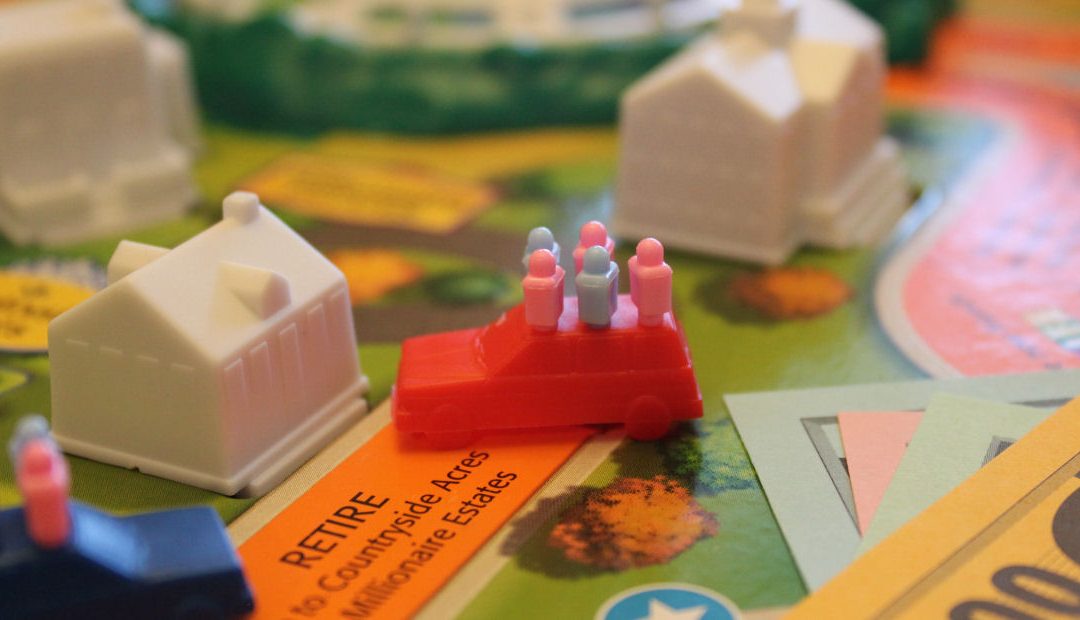What is the meaning of life?
The question feels colossal. Maybe even unanswerable at first. When we’re young, we plan for our ideal adulthood via main plot points:
√ Pick a career
√ Get married
√ Have kids
Then we grow older and begin to understand that those checkboxes aren’t everything. Successful careers and thriving families are merely the cumulative results of some larger force that drives each of us in unique ways.
One of my favorite games growing up was Milton Bradley’s The Game of Life. I recently played it with my family, and was amused to see my kids react the same way I did at their age. “Yes! I got the best salary!” “It’s not fair! I wanted to be a doctor!” “I hope I get twins!” Of course, the game’s ultimate winner is defined by who has the most money. My boys were being taught the same unconscious lessons I absorbed when I was a kid.
I watched as they became swept up by imagination, seeing their “lives” unfold through the events marked by a large “STOP!” sign on the gameboard. They raced each other to see who could start a career, buy a house, build a family, and collect a payout the fastest. But even as I delighted in their enthusiasm, I was struck by a disquieting thought.
The big events provide a necessary chassis, sure – but what about those more common spaces on the gameboard we barely pause to read? The ones that say, “Go Fishing,” “Plant a Tree,” or “Visit a Museum.” Aren’t those just as important? How about coffee dates? Laughter during family dinner? Still moments to observe the clouds float across the sky? Why don’t these moments earn checkboxes?
These moments are literally what make up a life. The weight and meaning of our experiences are ours alone, but more importantly, they are ours to own. We get to direct our energy and attention toward whatever we value most. Each hour, you’re making the decision to focus on past performance, current experiences, or future plans. We get to decide when to be the driver and when to be the passenger in that little red car filled with pink and blue pegs.
It’s not a one-size-fits-all kind of thing. We all extract different significance from our days for different reasons. Yet when there are kids (pink and blue pegs) in our orbit, our choices about what’s important have influence. We navigate the “Game of Life” differently when there is precious cargo onboard. It’s worth noticing your personal tendencies and becoming clear on your answers to the big questions. What you find is what you’re teaching your children by example. Is finishing the game with the most money and accolades really the way you win? What is most important?
Widen the lens. Try to take on the big questions (“What is the meaning of life?”) with little answers. What if you could only respond with one grammatically correct sentence (no run-ons)? There are many questions to answer beyond figuring out the meaning of life. What is the role of joy and sorrow? What is the balance between work and play? How are pain and growth related? The point of limiting yourself to little answers is to force clarity. So here’s today’s big question: Why were you placed on this planet in this moment?
Define your purpose. You have one sentence available for your answer.

About the Author
Kerry Galarza, MS OTR/L is the Clinical Director and an occupational therapist at Elmhurst Counseling. She provides specialized assessment and intervention with children of all ages and their families. Kerry engages clients with naturally occurring, meaningful home-based methods to empower autonomy and maximize functioning.

